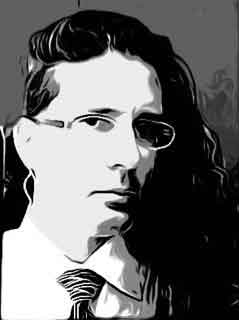“Democracy” does not mean elections. It does not mean “two wolves and a sheep voting on what’s for dinner.” It does not mean the tyranny of the majority.![]()
“Of the people, by the people, for the people”
The word “democracy” comes from the ancient Greek δῆμος κράτος — dêmos kratos — literally “people power.” It means not monarchy with a king who is in charge because he owns the place. Not aristocracy with a special leader-class of people who are born to it. Not theocracy by priests who derive their power from the favor of the gods.Not any special governing class, but rather a government reflecting all of the people.
Democracy means that government derives its legitimacy from the people it governs, has no separation from that populace, and acts in their service: Lincoln’s “of the people, by the people, for the people.”
It is a principle, not a particular method like voting. There are many different structural, institutional solutions to how a state may enact the principle of democracy. People who make a smug claim to political sophistication by saying “the United States is a constitutional republic, not a democracy” actually betray their lack of sophistication. A constitutional republic is one institutional form for democracy. Town hall meetings, referenda, juries chosen by lottery, elected representatives: all of these and more are democratic mechanisms, grounding governance in the citizenry.
Liberal democracy
Liberal democracy is a particular conception of democracy. The “liberal” in this case refers not to the 21stcentury sense of the liberal-conservative political axis but the 17th century sense described by political philosophers like John Locke. It understands democracy to require not simply giving the majority power to enact their will; liberal democracy also provides minorities with protections and all citizens with support for universal rights: Jefferson’s “all men are created equal … with certain unalienable rights … to secure these rights, governments are instituted among men, deriving their just powers from the consent of the governed”. Liberal democracy sees government’s purpose as being the guarantor of people’s rights which are understood to be logically prior to the government.
Liberal democracy recognizes government both as necessary for the protection of citizens’ rights and as a threat to those rights, and seeks to emphasize the former and avoid the latter by cleverly structuring government institutions. James Madison in The Federalist describes this:
“If men were angels, no government would be necessary. If angels were to govern men, neither external nor internal controls on government would be necessary. In framing a government which is to be administered by men over men, the great difficulty lies in this: you must first enable the government to control the governed; and in the next place oblige it to control itself. A dependence on the people is, no doubt, the primary control on the government; but experience has taught mankind the necessity of auxiliary precautions.”
Those “auxiliary precautions” include the rule of law, elections making governing representatives accountable, structural rivalries limiting government institutions through checks and balances, and so forth. Again, these institutional safeguards could take a range of different forms: the US has a bicameral legislature of geographically-defined seats plus a nationally-elected presidency, Denmark has a unicameral parliament of proportionally-represented parties plus a prime minister chosen by the legislature, and so forth.

An imperfect solution for an imperfect world
![]() Alas, real-world liberal democratic states are, of course, imperfect. They sometimes violate citizens’ rights, enact policies contrary to the interests of the citizenry, and so forth. As Madison described, liberal democracy is an imperfect solution for an imperfect world.
Alas, real-world liberal democratic states are, of course, imperfect. They sometimes violate citizens’ rights, enact policies contrary to the interests of the citizenry, and so forth. As Madison described, liberal democracy is an imperfect solution for an imperfect world.
So I recognize why some people, frustrated by the failings of real-world liberal democracies, long for anarchist freedom or a good king or any of a number of other utopian dreams. But history teaches me that the principles of liberal democracy — despite its imperfections — delivers a better civilization than any real alternative. The way to better governance is reform — even revolutionary change — which deepens our investment in the principles of liberal democracy, not tearing it down in favor of utopian alternatives.
Jonathan Korman is a designer and occasional blogger living in the San Francisco Bay Area. This post was republished and edited with permission.
Featured image by Sara. Some rights reserved.

